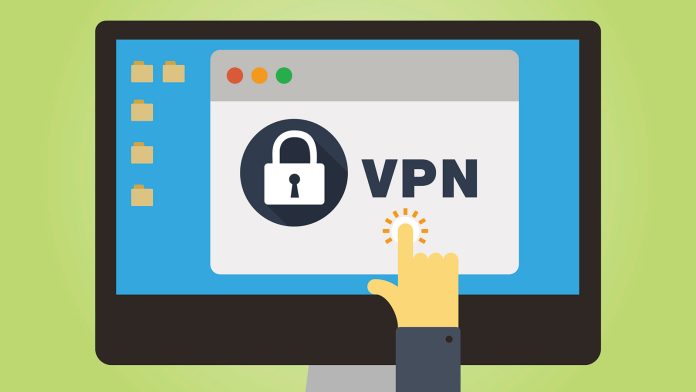When you’re abroad and suddenly find yourself unable to use your go-to streaming site, or discover certain sites are blocked where you are, you’re experiencing firsthand the truth that the internet isn’t as borderless as it seems. Virtual Private Networks, or VPNs, have become the solution for millions of individuals wanting to bypass such online restrictions, but exactly how do they work, and what are the implications?
Understanding the Digital Divide
Internet censorship by region is in many various forms, and it’s more widespread than you might think. Government censorship is applied to about 3.8 billion people around the world, with countries like China, Iran, and North Korea having advanced filtering installed. But it isn’t just repressive governments, even democratic states geo-block for content licensing, money controls, and gambling prohibitions.
Content producers geo-block approximately 30% of their content under the terms of licensing agreements. Netflix, for instance, offers varying catalogs across various locations, with the US catalog containing almost 40% more titles than the typical international catalog. Similarly, financial institutions are often limited by geography, too, like in the case of internet gambling, where it is regulated wildly between jurisdictions.
The VPN Solution: Digital Location Shifting
Think of a VPN as a web tunnel between your computer and a server in some other location. While you browse the net through this tunnel, websites become aware of the location of the VPN server instead of yours. It is similar to having a mail forwarding facility; your letters (information) are routed through an address somewhere else before reaching their destination.
It is done by IP address masking. Every internet-connected device is assigned an IP address that determines its approximate location. VPNs give you a different IP address from their server network, effectively teleporting you to another country. The new VPN providers have thousands of servers spread out over 50+ countries, giving you tremendous freedom in choosing your virtual country.
The encryption add-on gives you an added layer of functionality. Your internet traffic is encrypted using military-grade encryption protocols, so it is practically impossible for internet service providers, governments, and hackers to see what you’re up to online.
Real-World Scenarios
The applications of circumventing geo-blocking are more diverse than one would anticipate. Foreign students use VPNs to gain access to geographically locked research databases. Business travelers rely on them in order to continue having access to company networks and communication platforms that can be censored in some countries.
In the entertainment use case, users frequently watch geo-blocked streaming content. A subscriber can use a VPN to watch BBC iPlayer outside the UK or watch Hulu in Europe. The practice is so common that an estimated 26% of Netflix users have used VPNs to access other regional libraries.
Financial services are another large usage case. Online banking restrictions, investment platforms, and even payment gateways might occasionally limit usage based on geographic location. That is exactly the case with online betting and games, where users would seek access to platforms unavailable where they are. For instance, gamblers can look for pay by phone casinos that are not limited by local gambling rules, using VPNs to access sites that offer simple mobile payment schemes without the restrictions imposed by their home country’s gaming commission.
The convenience factor is important; pay-by-phone options eliminate the need for credit cards or bank transfers, making transactions quicker and less noticeable. Users should, however, be aware that accessing gambling sites through VPNs may infringe on the site’s terms of service and national law.
Technical Effectiveness and Limitations
VPNs are not infallible. Streaming services have made a significant investment in detecting VPNs, leveraging methods such as IP blacklisting, DNS examination, and behavior monitoring. Netflix blocks approximately 80% of known VPN servers, but the game of cat-and-mouse continues since VPN companies keep introducing new servers.
Speed is also a factor. VPN connections normally cut internet speed by 10-25% due to encryption overhead and passage through far-away servers.
The further away the server, the greater the slowdown becomes.
VPN restrictions have been undertaken by some nations themselves. China mandates that VPN providers acquire government licenses, essentially blocking most commercial services. Russia has the same type of restrictions, and nations such as Belarus and Turkey block VPN traffic occasionally during politically charged times.
Legal and Practical Implications
VPN use is legally in a gray area throughout most of the world. It is not against the law to employ a VPN in most nations, but using it to violate terms of service or bypass content licensing agreements will have consequences. VPN use is being terminated by some streaming platforms for relentless repetition, and visiting gambling sites forbidden in your territory may even violate local laws.
The actual-world reality is that enforcement is piecemeal and sometimes tricky. Consequences are mostly account suspension, not legal punishment, but you ought to research the local regulations in your region.
Looking Forward
As internet fragmentation grows, VPN usage continues to increase at about 25% annually. But detection methods are intensifying, and some governments resort to more extreme blocking methods. The future will likely be an ongoing technological game of cat-and-mouse between limitation methods and bypass technology.
For now, VPNs remain the most easily accessible way of bypassing local internet censorship, offering both privacy benefits and access to a freer internet experience. Just don’t forget that greater access involves greater responsibility to educate yourself on and respect the legal frameworks you’re operating under.

